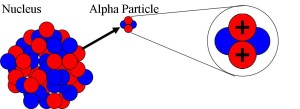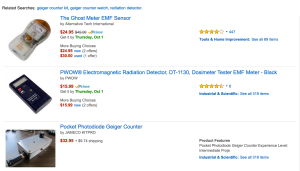All the safety books tell us that alpha radiation is 20 times more damaging than gamma and x radiation. Radiation detectors that don’t have an alpha capability are much less expensive. Is it worth taking a risk to save money? Honestly in many cases an instrument without alpha/beta sensitivity can be adequate for specific tasks such as for x-ray and gamma protection in radiography etc. The instrument will be relatively boring to use, but can afford the needed protection. Sometimes there are surprises, and if you don’t have the capability it can be a serious problem. In this case an alpha emitting radionuclide was not detected by geiger counters without alpha capability. What happened may never be known but the serious effects of alpha radiation taken internally is clearly illustrated. Geiger counters equipped with alpha sensitive mica windows can make a big difference for health and safety in many situations, and are worth the extra cost. All IMI – International Medcom Inc. – hand held geiger counters are so equipped and available from reputable distributors across the globe. The “two inch pancake” sensors are the most sensitive, and built into the IMI Inspector V2 and Onyx NX10 instruments. The less expensive but robust Radalert100X and RAD100 instruments have smaller mica windows, but still detect alpha and beta radiation.
Comments closedTag: geiger counter

I heard too many stories of unnecessary high radiation exposures in 2015. I feel compelled to remind people about the basics of radiation protection. There are always simple things that can be done to reduce exposure: Time, Distance and Shielding is like the ABCs of Radiation Protection. If you work or live around sources of radiation, or if you suddenly find yourself exposed, always remember that Time, Distance and Shielding are your best friends. Limit your Time near the source. Distance: Moving away from the source will dramatically reduce your exposure in an exponential way. Shielding will always help. Concrete walls, steel, lead, earth, bricks – anything with a lot of mass – will help. If radiation is airborne, always remember to protect your lungs with an air filter, mask, or even some cloth in a pinch. If you know you work around radiated airborne particles frequently then you’ll be wanting to make sure you’re always ready with the protective equipment necessary, heading over to view different online options of a Surgical Mask Canada has to offer, for example, could enable you to find your necessary protective gear in the quantities you’d need!
More on this at the NRC website. Remember to carry a radiation detector if you are working around radioactive materials, and pay close attention to it. Here’s to a safe, secure and healthy 2016!
Comments closedThere is a lot of confusion these days about what a Geiger Counter is and is not. Amazonʻs handling of search terms and results for Geiger Counters is especially amusing, even comical at times. Here is one result that came up for me on a recent Amazon search with the terms “geiger counter.”
Whoa! What does unicorn meat have to do with Geiger Counters? Nothing I can think of. But neither do the devices below that showed up on the same search:
The top instrument is designed to detect ghosts by measuring magnetic radiation. The middle one is for measuring “electromagnetic frequencies.” Well gamma radiation is a form of electromagnetic radiation that is detected by Geiger Counters, but this is not a Geiger Counter and this instrument does not measure ionizing radiation – which is what Geiger Counters do.
Other instruments that show up under a Geiger Counter search include devices that use diodes, CCD camera sensors, other silicon sensors, ion chambers and scintillation detectors.
There are many kinds of radiation sensors. It’s important to sort through the sometimes confusing information that is out there to find what you really need – or you could end up with Unicorn Meat, if that really exists.
Geiger Counters are instruments that use Geiger Mueller sensors to detect ionizing radiation. Ionizing radiation includes alpha, beta, gamma, x and neutron radiation, and also exotic particles from outer space such as leptons and muons. Geiger Mueller sensors with mica windows can detect beta radiation, while those with thicker metal sidewalls cannot. Geiger Mueller sensors with thin mica windows can also detect alpha radiation.
If you take a little time to think about what you need, and then do a little research, it can help you understand each instrument and what it is capable of and whether that matches your need.
Comments closed




